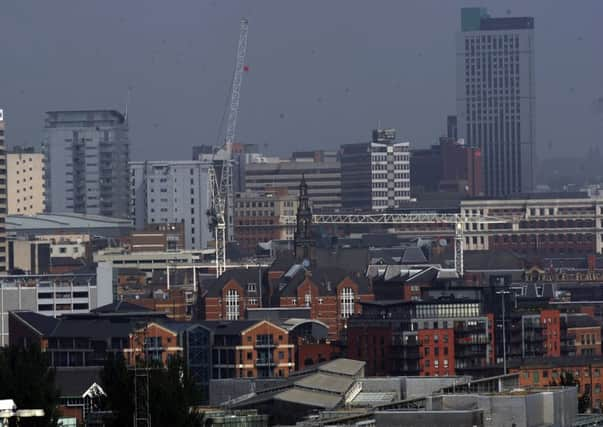Ed Cox: North could be breath of fresh air future needs


But in fact unclean air from the most polluting vehicles is killing thousands a year in Leeds, Sheffield and York today.
If steam and coal powered the 19th century, giving way to the rise of petrol and diesel cars in the 20th century, we need to consider what kind of energy and transport system we need in the 21st century.
Advertisement
Hide AdAdvertisement
Hide AdBy and large we’re still meeting our transport needs – whether that’s commuting into town or getting the train from Sheffield to Leeds for a business meeting – using 20th century technology. But this raises big questions.
How can we prevent future deaths from invisible pollutants? And how will we travel for business and leisure once fossil fuels have run out?
These are the questions we have looked at in our latest report from the Northern Energy Taskforce.
The Taskforce – a partnership of the North’s leading players in the energy sector, including Northern Powergrid, Northern Gas Networks and KPMG –suggest two ideas that will make sure Yorkshire and the rest of the North can once again lead the world with the green transport revolution: both in travelling around the North ourselves to make the most of our huge economy, as well as selling this technology to others.
Advertisement
Hide AdAdvertisement
Hide AdFirstly, we need to see many more incentives to buy electric cars. The poor reputation they had in the 90s is quickly giving way to better vehicles than ever. In fact some are so smart they can even sell their reserves back into the national grid during periods of peak energy.
The North of England is already a world-leader in this technology: for instance, Nissan and the Northern Powergrid, which powers 3.9 million homes in Yorkshire, Lincolnshire and the North East, have an industry-leading partnership to look at how electric vehicles, batteries and other technologies can support new energy networks.
The partnership also explores how new technologies can enhance the capacity, capability and resilience of the region’s power network to make it more active and responsive to the growing and changing demands of both domestic and commercial customers.
But despite such innovative projects, on current projections by 2030 only one in 20 vehicles will be powered by electricity. To make a big change, we need to see investment so that when it comes time to buy a new car, going electric is the cheaper and cleaner clear choice for consumers.
Advertisement
Hide AdAdvertisement
Hide AdAnd alongside these carrots we need sticks too, if we’re going to prevent future deaths.
Highly-polluting diesel fumes are the tobacco of the 21st century and pose a huge threat to all our health. Through Clean Air Zones we need to start restricting them from our towns and cities.
It’s true that many were sold a pup by car manufacturers claiming these were a better choice than petrol, and so measures should be phased over time to allow families a chance to adapt. But let’s be clear: This is one of the biggest challenges of our time, and as with smoking in the 1960s onwards, we need to introduce punitive measures if we’re going to boost our health over time.
Secondly, we need a huge upgrade in public transport to make journeys quicker, cheaper and greener than they are today.
Advertisement
Hide AdAdvertisement
Hide AdThe announcement of the new HS2 route this week is a start but only one piece of a much bigger jigsaw in connections across Yorkshire, the Northern Powerhouse and our neighbours north and south.
We should also be exploring a brand new network of hydrogen-powered trains – imagine Yorkshire as a world-leader on this technology, with new green jobs employing thousands.
And if that sounds far-fetched or unlikely remember the world’s first ever steam locomotive was invented here in the North, and the first ever canal developed to transport wool from Leeds to Liverpool.
It is this very northern innovation which is underpinning the work of our Northern Energy Taskforce. We know we have the imagination here in spades, but a ‘Whitehall knows best’ culture of centralisation is holding us back.
Advertisement
Hide AdAdvertisement
Hide AdWe need to see central government taking much less of a role – and instead councils and Transport for the North working together with northern businesses to develop a proper energy strategy to take us into the 2020s and 2030s: by us, for us.
This will help unlock our region’s potential, create new jobs and once again see the North powering the nation – turning the Department for Business, Energy and Industrial Strategy’s future energy supply problem from national headache to northern prosperity.
Far from a chore, ditching diesel and petrol can boost the health and wealth of the Northern Powerhouse.
Ed Cox is the Director of IPPR North, the dedicated think-tank for the North of England